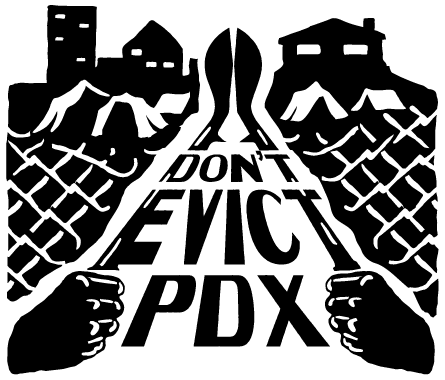About Us
We are a collective of tenants working to prevent, delay, and reduce the harm of evictions; and build tenant power.
Scope of Work & Membership
WHAT: Anti-eviction Organizing and Eviction Defense
Preventing evictions
Delaying evictions
Reducing harm of evictions
Building collective tenant power
WHO: By tenants, for tenants, against evictors.
When we say evictors we mean people who hold structural power in eviction process.
Judges
Cops
Landlords
Lawyers who represent landlords
Community Agreements: How we are with each other, what we expect of ourselves and others within the organization
We are responsible together for how the organization affects both members and non-members. We succeed together and fail together.
We celebrate and appreciate our collective work and individual selves. We seek to learn about each other.
We focus on supporting ourselves and others to understand options, articulate values, and make decisions that are right for each of us. We avoid assuming that we know what someone else should or can do, while also being able to make our own decisions based on our own knowledge
We prioritize the learning needs of newer members over the convenience of more experienced members.
In our conversations, we define acronyms and jargon, and only use them when they improve our communication.
We provide transparency about our process for new members.
We work to increase connections within our communities, specifically by acting against the false sense of “insider”ness that comes from isolating someone else.
We actively seek ways to share work, both so no one has too much responsibility and everyone has on-ramps to new skills.
We build in backup plans, because unexpected things happen, and because it makes the work more accessible for more people to try new things. We try to let each other know early if we need help keeping a commitment, knowing that changing our minds is healthy, and there is a net to catch us.
We agree to make sure we don’t hold exclusive or privileged access to important knowledge, skill, and organizational relationships; if we find that situation developing, we make a plan together to share those things and build organizational capacity.
We notice the number of roles/tasks that are held by an individual, and redistribute them when they become concentrated.
We commit to intervening in oppressive behavior and, to the extent possible, strive to do it transparently and firmly.
We prioritize analyzing power dynamics and effects over “rules for correct behaviour”.
We seek out learning about the material effects of our actions. Does it alleviate suffering? Does it increase justice?
When considering a practice or action we consider “How does this build our collective skill, knowledge, and power.”
Rather than asking what is the “right way” we work to analyze and evalluate the strengths/weaknesses in a particular situation.
